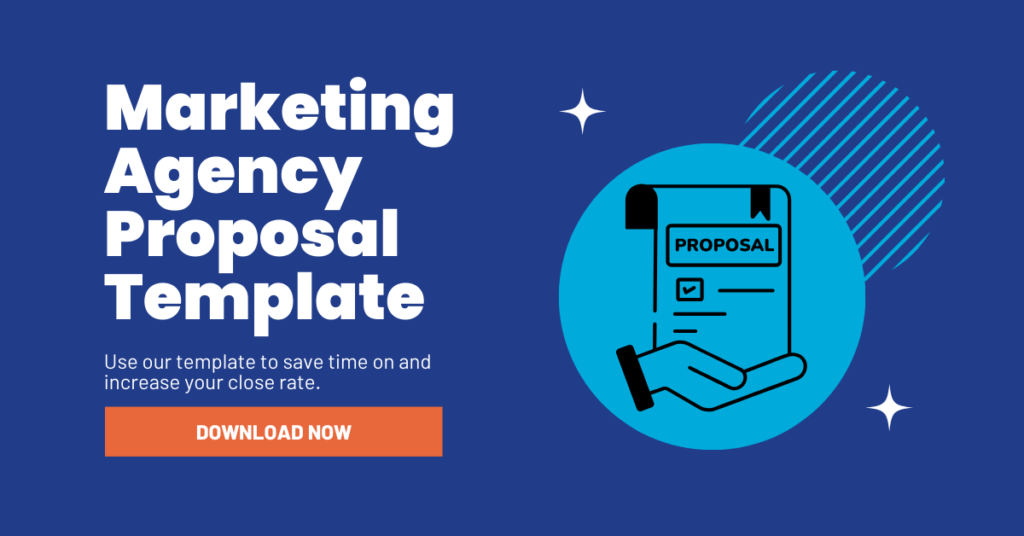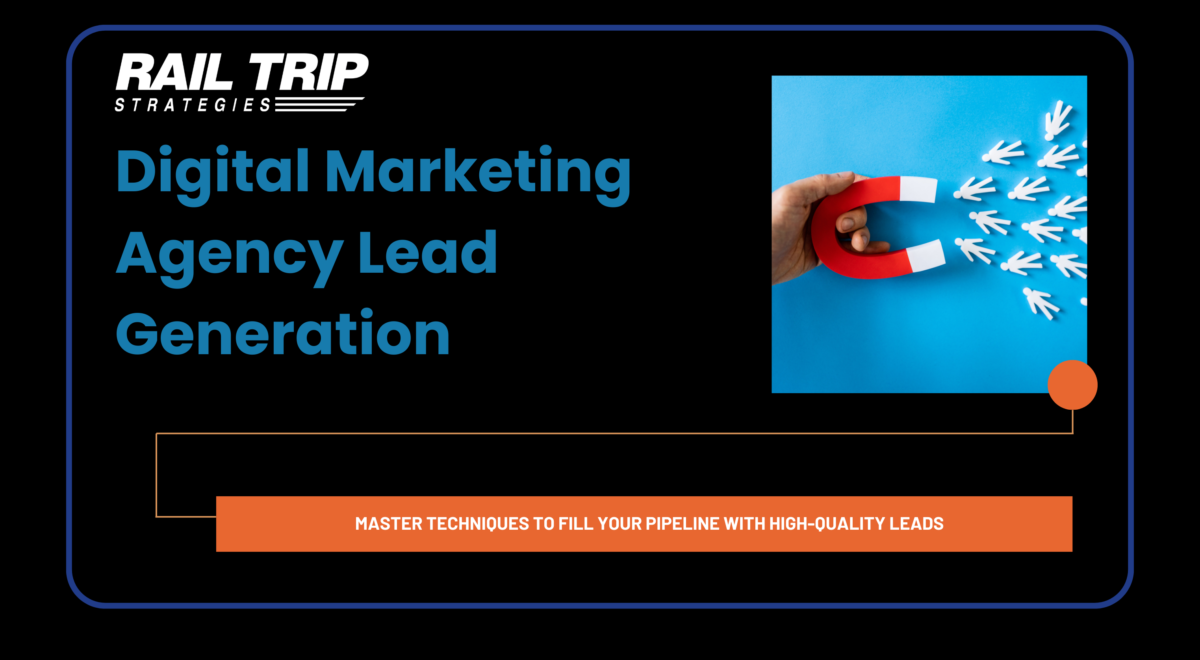Lead generation is the process of identifying, nurturing, and converting prospective customers into qualified leads for your business. It is a crucial component of any digital marketing strategy, especially for agencies looking to grow their client base.
At its core, digital marketing lead generation creates awareness of your services, establishes your expertise, builds trust and credibility, and attracts potential new clients into your sales funnel. The goal is to attract and convert high-intent, high-value prospects that align with your ideal customer profile. By focusing your messaging, offers, and calls-to-action to your target audience, you can optimize conversion rates. Studies show that companies who prioritize lead generation grow faster on average than those who don’t.
Identifying Your Target Audience
Accurately identifying and understanding your target audience is crucial for developing effective lead generation strategies for a digital marketing agency. Trying to be everything to everyone will spread your efforts too thin and reduce your return on investment. The most successful agencies tailor their lead gen campaigns by creating detailed buyer personas of their ideal clients.
Buyer personas represent your target customers based on market research and real data on your existing client base. Build profiles for each persona that includes demographics, goals, challenges, and behaviors. This will provide insights to help you create messaging, offers, and content specifically tailored to each persona’s needs. Focus on the customer’s point of view and what motivates them to seek out and engage with digital marketing services.
Align your personas with your agency’s areas of specialization to ensure you are targeting prospects you are equipped to serve. For example, if you specialize in SEO for ecommerce sites, your personas may represent online retailers with a need for organic traffic growth. Keep your personas updated as you gain more customers to ensure they continue reflecting your best-fit clients. With clearly defined personas guiding your lead generation efforts, you can develop targeted campaigns that resonate with your ideal prospects.
Effective Digital Marketing Lead Generation Strategies
There are several key strategies that digital marketing agencies leverage to generate leads:
SEO
Search engine optimization (SEO) involves optimizing your website and content to rank higher in search engines like Google. By ranking for relevant keywords, you can drive more organic traffic and leads to your site. Important SEO tactics include keyword research, on-page optimization, link building, and creating content that targets buyer keywords.
PPC
Pay-per-click (PPC) advertising like Google Ads allows you to pay to show your ads to people searching for relevant terms. You can tailor your targeting to reach your ideal clients and only pay when they click your ad. Effective PPC campaign management, including testing different ads, landing pages, and keywords, is key to generating quality leads cost-effectively.
Content Marketing
Creating valuable content like blog posts, ebooks, webinars, and videos helps attract and engage potential leads for your agency. This content serves as “lead magnets” that people opt-in to access, providing you their contact information. Content should target relevant buyer keywords and pain points to be effective.
Leveraging Technology for Lead Generation
Technology has become an invaluable tool for digital marketing agencies to enhance their lead generation efforts. By leveraging the right software and systems, agencies can dramatically improve lead capture, follow-up, and overall efficiency. Need help selecting and implementing the right tech stack? Our Sales Enablement Services are built to support modern agencies with strategy, execution, and reporting. Some of the key technologies to consider include:
Marketing Automation
Marketers using automation software convert up to 77% more leads than those who do not utilize such tools. Marketing automation systems like HubSpot and Marketo allow agencies to nurture leads with customized drip campaigns and automated workflows. Features like lead scoring help agencies determine lead readiness and prioritize the most promising prospects. Automated email sequences keep leads engaged after initial form fills, driving higher conversion rates.
Chatbots
Chatbots powered by AI give agencies a way to immediately engage website visitors and capture leads 24/7. Chatbots can qualify leads with customized questions and workflows. They can also book meetings, answer common questions, and deliver lead magnets – providing instant value and building relationships.
CRM Systems
A centralized CRM system gives sales and marketing teams shared visibility into every lead and prospect. CRMs like Salesforce help agencies seamlessly track lead activity across channels, ensuring no opportunities slip through the cracks. Lead assignment, workflow automation, and reporting provide transparency and accountability.
The right tech stack helps agencies scale their lead gen efforts exponentially. With marketing automation capturing leads, chatbots qualifying them, and CRM tracking engagement, agencies can nurture and convert more ideal prospects into ideal clients. The key is integrating these technologies together for a streamlined lead generation machine.

The Role of Content in Lead Generation
Content marketing plays a pivotal role in attracting and converting leads for digital marketing agencies. By creating valuable, relevant content and positioning it as a lead magnet, agencies can capture contact information from interested prospects in exchange for accessing that content.
Some of the most effective types of lead magnet content include:
- Webinars – Webinars position agencies as thought leaders while generating high-quality leads. Prospects are willing to share contact info to attend live or access on-demand webinars that provide useful advice and insights.
- Ebooks – In-depth ebooks and guides demonstrate expertise and build brand affinity. Ebooks offered in exchange for email addresses can convert cold traffic into warm leads.
- Whitepapers – Data-driven whitepapers establish credibility and trust. A well-researched whitepaper is an attractive lead magnet that provides value.
The key is creating content that appeals to and answers the questions of your target audience. The content should be original, practical, and educational – not a sales pitch.
Lead magnet content gives agencies a way to start meaningful conversations and build relationships with prospects already interested and engaged with their brand. Nurturing leads through ongoing content and communication further converts prospects into customers.
Utilizing Data and Analytics
Data and analytics play a crucial role in lead generation by providing key insights to optimize campaigns and drive better results. By leveraging data, digital marketing agencies can accurately track lead generation efforts, identify the most effective strategies, adjust campaigns based on performance, and make smart, data-driven decisions.
Implementing analytics tools is essential for monitoring campaign metrics like website traffic, lead capture forms, landing page visits, email open rates, and more. This performance data reveals important details such as the campaigns, channels, and content driving the most conversions. Agencies can use these insights to double down on high-performing platforms and refocus efforts from poorer performing areas.
Data also enables A/B testing different subject lines, calls-to-action, landing pages, and other elements. By comparing variants, agencies determine which version resonates best with their target audience to maximize lead generation.
Ongoing analysis identifies trends and opportunities over time. Monitoring lead quality and sales cycle length by source shows where leads convert best. This demonstrates the highest ROI channels to allocate budget towards.
Essentially, a data-driven approach takes the guesswork out of lead generation. Rather than making instinctual decisions, agencies rely on hard analytics proof to optimize campaigns. This leads to higher quality leads, improved conversion rates, and bigger returns on marketing spend.
Building and Nurturing Relationships
Building and nurturing relationships with leads is a critical part of converting them into customers. A key strategy here is lead nurturing – providing valuable, relevant content and information to leads over time to build trust and affinity.
Email marketing is an excellent channel for lead nurturing. Setting up automated email workflows allows you to deliver personalized, tailored content to leads based on their interests and where they are in the sales funnel. For example, you may send educational materials to new leads, product updates and demos to leads that have shown interest, and special offers or incentives to leads that are close to converting.
Personalized outreach is another way to nurture relationships with leads. This could involve one-on-one phone calls, video chats, personalized emails, or invitations to webinars and events. The goal is to make leads feel valued and understood. Asking the right questions to understand their challenges, and providing thoughtful guidance tailored to their needs, helps build a connection.
Consistent, helpful engagement over time turns leads into loyal customers. Lead nurturing accelerates this process by building familiarity and trust. It’s about moving from a transactional mindset to a consultative relationship.
Challenges and Solutions in Lead Generation
Lead generation can be tricky for digital marketing agencies. Here are some common challenges agencies face:
Competing for attention – With so much noise online, it’s challenging to get prospects to notice and engage with your content. Agencies need creative strategies to stand out.
Proving ROI – Many prospects want to see a clear ROI before investing in services. Agencies struggle to quantify and demonstrate the value of their offerings.
Lengthy sales cycles – The B2B sales process often involves multiple touchpoints and can take months before closing a deal. Maintaining engagement over an extended period is difficult.
Resource constraints – Lead gen requires extensive time, effort and expertise. For smaller agencies, dedicating sufficient resources can be a roadblock.
To tackle these challenges, agencies should consider:
Personalization – Make content and messaging relevant to each prospect’s needs. Segment and target outreach to customize for different audiences.
Patience and persistence – Commit to consistency in nurturing leads, following up, and providing value over time. Don’t get discouraged by a long sales cycle.
A/B testing – Try different content formats, offers, and outreach strategies and test them against each other. Analyze results to determine what resonates most with your audience.
Continuous improvement – Continuously evaluate campaign metrics and optimize based on learnings. Experiment with new strategies and adapt approaches that drive better results.
With strategic effort and optimization, agencies can overcome obstacles and maximize their lead generation success. Testing, adapting and customizing campaigns allows agencies to stand out and prove their value.
Get Started With Qualified Lead Generation
Generating leads is critical for the growth and success of any digital marketing agency. This article has covered the key strategies and best practices for optimizing your agency’s lead-generation efforts.
To summarize, clearly define your target audience and tailor your tactics to their needs. Leverage technology like marketing automation, CRM, and analytics to streamline capturing and nurturing leads. Focus on building relationships by providing value and consistent engagement.
While digital marketing lead generation presents challenges, they can be overcome through testing, optimization, and learning from both successes and failures.
Need some help building a sales process to fill your pipeline? Reach out to Rail Trip Strategies today to learn how we can support your lead gen.

